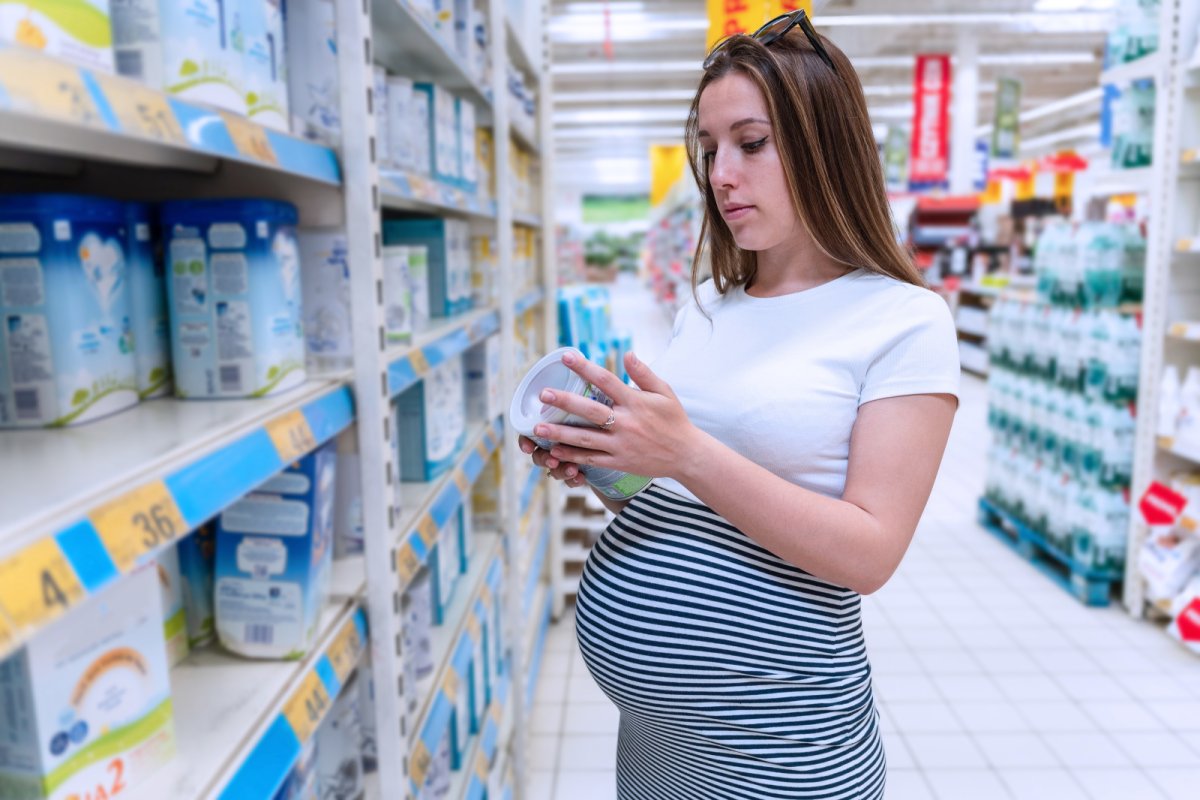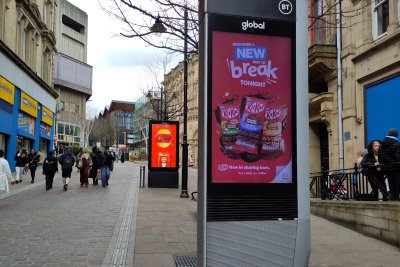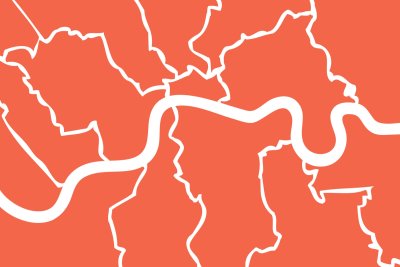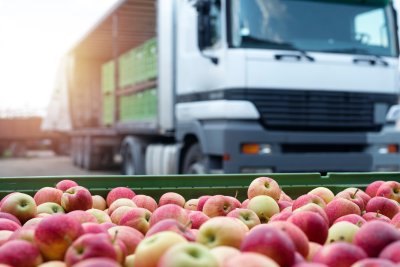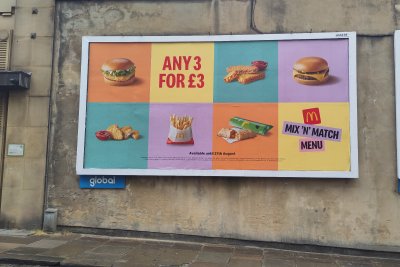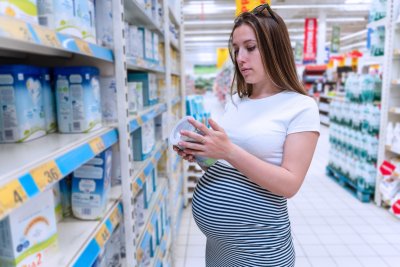 A pregnant woman looks at baby formula in a supermarket. Credit: MVelishchuk: Shutterstock
A pregnant woman looks at baby formula in a supermarket. Credit: MVelishchuk: Shutterstock
Hounslow Council signs off first ever comprehensive healthier baby food advertising policy
The policy was brought in as part of their healthier food advertising policy and will address misleading and inappropriate unhealthy products marketed to young children
Hounslow Council has prioritised children’s health by signing off a policy that comprehensively restricts advertising of inappropriate and nutritionally poor foods and drinks at every age across their local area.
They are the first government of any size to act on the World Health Organization’s (WHO) calls to comprehensively restrict the inappropriate marketing of commercial baby food. Evidence from the UK and beyond shows many products have poor nutrition and are misleadingly marketed, masking unhealthy qualities. Alongside this, they become the 21st local government in addition to bring in a Healthier Food Advertising Policy, after the Mayor of London, with support from Sustain, first brought in the policy across the Transport for London network in 2019. Hounslow Council is the eighth London borough to do so after Haringey, Southwark, Merton, Greenwich, Tower Hamlets, Havering and Newham.
Hounslow Council’s policy is the first to comprehensively address inappropriately marketed foods and drinks for babies and children under 3 years. It is the first to include the WHO Code, which provides protections against inappropriately marketed breastmilk substitutes and follow-on milks, as well as the WHO’s Nutrient and Promotion Profile Model (NPPM) which provides protections against inappropriately marketed commercial (bought) baby foods and other drinks.
Fran Bernhardt, Sustain's Commercial Determinants Coordinator said:
We’re delighted to have worked with Hounslow Council to become the first to take action on both commercial baby foods and unhealthy foods and drinks. This is recommended by WHO to prioritise children's health.
There are now 21 English Councils plus the Transport for London network which have introduced robust policies designed by Sustain. This growing movement sends a message to the national Government to deliver on their pledges to restrict advertising on TV and online, and further focus on outdoor and radio to set the stage for healthier food across our communities.
This policy is a bold step in the right direction: prioritising not just health but equality and sustainability too. Evidence shows that putting the spotlight on unhealthy food increases the risk of food related ill health like diabetes, heart disease and tooth decay. Companies target low-income areas, resulting in people living there being more likely to experience poor health. Additionally, many of the restricted products are unsustainable containing climate damaging ingredients, such as sugar, cocoa and palm oil, as well as requiring lots of energy to process them.
We hope the terrific news from Hounslow Council will inspire even more Councils to take this important step for their residents’ health.
Councillor Lily Bath, Hounslow Council’s Cabinet Member for Adult Social Care, Public Health and Transformation, said:
The policy demonstrates the Council’s commitment to creating a healthier and more equal Hounslow. It is an important step in reducing health inequalities and creating healthy environments in which all our residents can thrive.
Dr Vicky Sibson, Director, First Steps Nutrition Trust, said:
This groundbreaking action from Hounslow - strengthening their local food advertising policy to protect our babies and young children - should be widely applauded. In the absence of meaningful regulations on nutrition composition and marketing, the vast majority of pouches, jars and packets on the baby food aisle are NOT healthy choices for young children, even though companies would have you believe they are. Infant formula is an essential food for young babies who are not breastfed, or who are only partially breastfed, but formula advertising is not needed and is known to confuse parents. It is especially problematic when it focuses on sugar-filled, unnecessary and unregulated products like ‘growing-up’ milks and drinks. We hope other local authorities will follow Hounslow’s lead to help reduce unhelpful commercial influence on parents and carers trying to make good choices on what to feed their babies and toddlers.
Background to the Healthier Food Advertising Policy
Evidence from the London School of Hygiene and Tropical Medicine’s evaluation of the Transport for London policy has shown that the restrictions led to a 20% reduction in sugary products, and a 1000 calorie decrease per week per household from unhealthy foods and drinks. Further modelling research from the University of Sheffield has estimated that across London, the restriction may lead to 95,000 fewer cases of obesity, 3000 fewer cases of diabetes and 2000 fewer cases of heart disease and could save the NHS £218 million over the lifetime of the current population.
Transport for London also announced that its advertising revenues have been unaffected by the restrictions since implementation in 2019. In the first year of the policy, revenues went up by £2.3 million, and in the second year (2020-21), despite financial losses due to Covid lockdowns at the time, the restrictions enabled the advertising figures to be maintained.
While local governments are taking action on outdoor advertising, national government has stalled. In September 2024, they recommitted to the timeline to restrict unhealthy food advertising from TV and online, which was welcomed after delays since it was first proposed in 2020 for implementation in 2022. However, in October 2024, the House of Lords inquiry on Food, Diet and Obesity urged the government to restrict unhealthy food and drink advertising across all advertising sites including outdoor by 2026.
If your local authority is interested in introducing a healthier food advertising policy, check out Sustain's toolkit for local authorities.
Background to the Healthier Baby Food Advertising Policy
The UK Government’s Competition and Markets Authority report highlights that formula marketing confuses parents, leads to them paying over the odds for formula milk and drowns out the “clear, accurate and impartial information” provided by health care professionals. As set out by the Food for Health Alliance: “Infant formula manufacturers worldwide have a history of unethically promoting their products – putting profits before baby health. This marketing is designed to influence parents and caregivers and can ultimately cloud their judgement when they are trying to make the best decisions for their babies and toddlers.” Bremner and co’s report has found that parents report feeling stigmatised whether they breastfeed, use formula or combine the two.
The NPPM covers all food and drinks (except breastmilk substitutes, as these are covered in the code) marketed for babies and young children under age 3. The NPPM is the first set of criteria to evaluate the quality of commercial baby foods both in terms of nutrition and how they are marketed. The NPPM aims to protect parents and their very young children from products with poor ingredients or nutrition (e.g. added sugars, too watery (low energy), high salt, or high sugar content) or that are marketed in a persuasive or misleading way (e.g. claims on pack of 'no added sugar' despite having high sugar levels, or that promote food introduction too early).
Commercial Determinants: Supporting policymakers and councils to introduce healthy food advertising policies.
Sustain
The Green House
244-254 Cambridge Heath Road
London E2 9DA
020 3559 6777
sustain@sustainweb.org
Sustain advocates food and agriculture policies and practices that enhance the health and welfare of people and animals, improve the working and living environment, promote equity and enrich society and culture.
© Sustain 2025
Registered charity (no. 1018643)
Data privacy & cookies
Icons by Icons8
